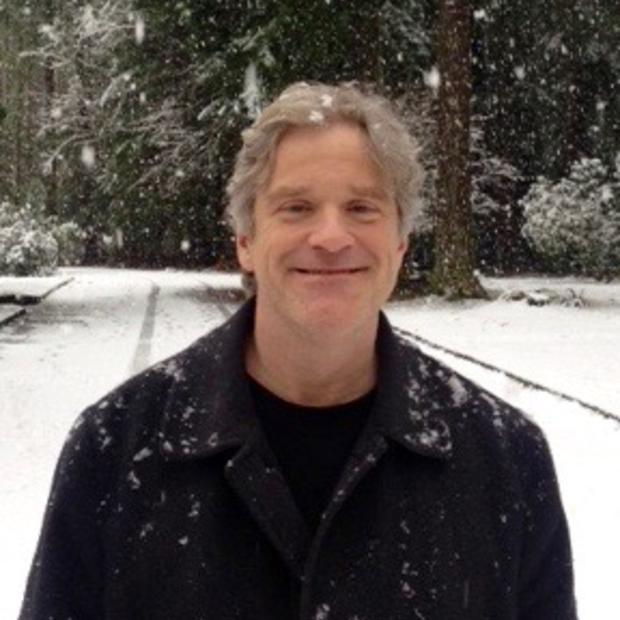A Yard-Man Snow Blower looks like a lawn seeder. It has a swing handle that helps rooster tail the powder, and it sometimes tommy guns like an outboard. This I know because I'm shoveling (or, more accurately, snow blowing) for my supper.
I'm in DC for a conference and a board meeting and now I'm the Bartleby-like house guest who ain't budging. "I'm overstaying my welcome," I say. "No worries," my hosts say. They pause and look at each other. "You can shovel for your supper."
Thankfully, snow blowers aren't carbon neutral, so I have the consummate Northwest excuse. ("Carbon footprint" sounds more meaningful than an ungrateful, "I prefer not to.") It's a get-out-of-work strategy not without risk. Let me put it this way: My hosts serve drinks in wine glasses that read, "George Bush President's Dinner, June 13, 1991, United States Tobacco Company."
"It's an electric snow blower," my hosts reply. I get handed an orange utility cord and the Yard-Man and off I go. Should I confess my fear of death by snow-blower shock? Not if I'm hungry.
The two feet of snow that dropped on Washington, quickly dubbed "Snowmageddon," is something to behold. Stranger still is the quiet circulation in the city, the low-metabolic hum of snow plows, of delivered newspapers (at least The New York Times), and of a route-limited, closing-early Metro system that's nevertheless moving people.
A massive snowball-fight meetup at Dupont Circle was scheduled on the Internet. The camaraderie, the volunteers with four-wheel drive shuttling patients to hospitals, the neighborly service ethic — all offer some evidence for Rebecca Solnit's >thesis in A Paradise Built in Hell: The Extraordinary Communities that Arise in Disaster. Disaster and trauma stir the best in us, Solnit argues. Washington's Snowmageddon isn't utopia, but there's something un-Hobbesian and communitarian and worthy about it. At least for now.
And so the dormer window flies open. My hosts' 12-year old son shouts, "Shovel for your supper!" I can't feel my skin. It's very sweet. Sort of.


